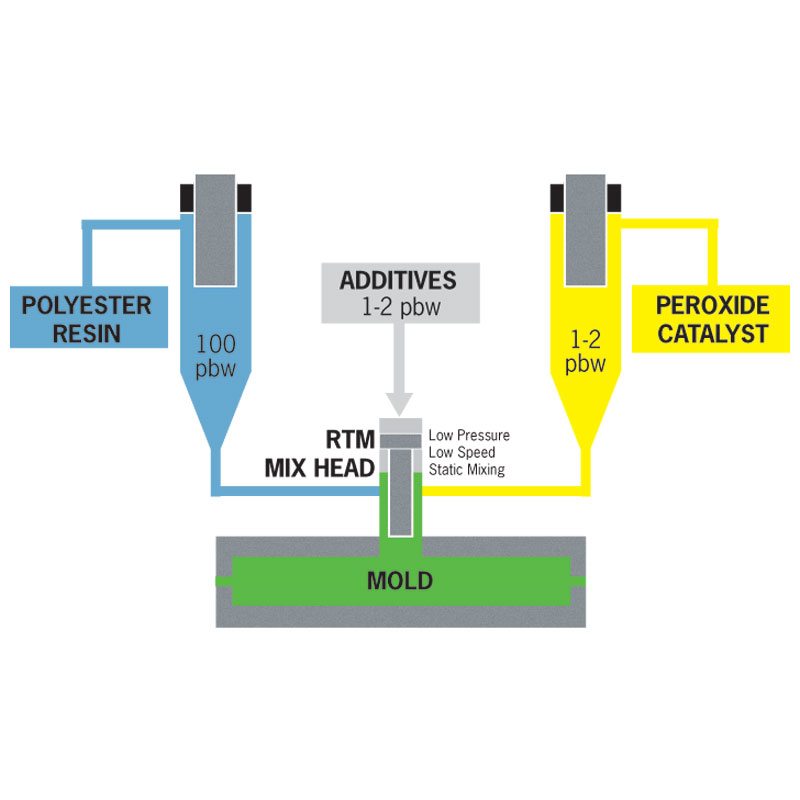
Osborne Presents at Small Animal Facilities Seminar
August 9, 2019
A Guide to Fiber Reinforced Polymer Molding
March 5, 2020Raising pigs outdoors presents some specific requirements in order to keep the herd healthy and happy. It all comes down to maintaining a close eye on your livestock and taking the proper measures to protect against any issues that could arise, like inclement weather or illness.
Below, Osborne tackles some of our most coveted tips for successfully raising pigs outside.
1. Provide Adequate Shelter
Space
You must have an adequate space for your pigs. Market hogs generally don’t require much square footage per animal, but pasture-raised animals for specialty markets or animals raised to meet high standards set forth by organizations like GAP (Global Animal Partnership) can require seven square feet or more. If you are a contract grower, be sure to abide by the space requirements set forth by your contractor.
Housing
 Housing should consist of a three-sided shelter with roof to shield animals from the wind, rain, snow, and sun. Shelters can easily be built out of a variety of materials, but galvanized steel structures are most common. Ultimately, the structure needs to protect animals from the elements, yet offer ample ventilation. Bedding inside the structures, generally straw, should be used to keep animals warm during cold weather and cool during hot weather.
Housing should consist of a three-sided shelter with roof to shield animals from the wind, rain, snow, and sun. Shelters can easily be built out of a variety of materials, but galvanized steel structures are most common. Ultimately, the structure needs to protect animals from the elements, yet offer ample ventilation. Bedding inside the structures, generally straw, should be used to keep animals warm during cold weather and cool during hot weather.
Fencing
Pigs will quickly learn to respect any fencing you have up, especially if that fence is electric, but you’ll want to ensure they learn the boundaries while they are still piglets. They can’t jump, so any fencing you put up can be relatively low – about 3 feet high should do the trick.
Heating and Cooling
Comfortable pigs tend to eat more, whereas pigs that are too hot or too cold will usually eat less, so this factor is essential to successfully grow pigs.
If you want to keep them out year-round, you must provide a source of heating and cooling to keep them comfortable in any weather. Hogs that are smaller than 50 lbs. will generally need additional heating, while pigs that are over 150 lbs. will need access to plenty of water and shade when outdoor temperatures exceed 80 degrees Fahrenheit.
2. Choose the Right Feeder
One of the most significant – and costly – aspects of keeping a healthy herd of pigs is how you feed them. Pigs need access to feed and water at all times – 24 hours, 7 days a week. The most efficient way to maintain this is by choosing the right feeder, with the popular choice being a self-feeder.
 Self-feeders allow your hogs to eat as much as they want, whenever they want, encouraging weight gain and overall good health. Self-feeders with ample storage capacity make feeding more convenient, so you don’t have to constantly check feed levels throughout the day.
Self-feeders allow your hogs to eat as much as they want, whenever they want, encouraging weight gain and overall good health. Self-feeders with ample storage capacity make feeding more convenient, so you don’t have to constantly check feed levels throughout the day.
Producers raising hogs outside agree: the Osborne Big Wheel Outdoor Feeder, which offers “no-waste” mechanical feed delivery is the best choice for outdoor self-feeders. Pigs turn a multi-spoke feed wheel in the bottom of the feed trough, dispensing feed out of the hopper into the trough where it’s provided to the pigs. The unique mechanical-flow feed delivery means feed stops flowing as soon as pigs stop moving the feed wheel. Pigs – not gravity – choose the feed delivery rate and the Big Wheel design prevents pigs from overloading the trough and wasting expensive feed.
3. Maintain a Clean Space
To keep pigs healthy, you need to keep all pastures and housing clean. Some important tips to help avoid contamination include:
- Dispose of manure as often as possible
- Disinfect equipment after each use
- Clean out water troughs weekly – in warmer weather, check daily and replace often
- Dispose of any broken or unused equipment, feed or water containers, and trash
- Keep a close eye on animal shelters – especially for farrowing animals – to make sure they are clean and dry
- Watch out for vermin and insects that could carry disease
- Keep pigs in separate pens from other livestock
- If any signs of illness or disease occur, isolate the sick pig from the group and contact your veterinarian
Being cautious, even if it feels overly-cautious, can make all the difference between a healthy herd and a sick herd of pigs. It is always best to play it safe when it comes to the well-being of your livestock.
Contact the Livestock Experts
Pasture-raised and antibiotic-free hogs for specialty markets are in high demand. However, whether you raise pigs indoors or outdoors, it’s essential to consider all factors to keep your animals healthy and your herd productive.
To learn more about livestock best practices or how Osborne Big Wheel Feeders can improve your operational efficiency when raising pigs outside, contact the professionals at Osborne today.
